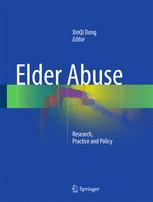

Most ebook files are in PDF format, so you can easily read them using various software such as Foxit Reader or directly on the Google Chrome browser.
Some ebook files are released by publishers in other formats such as .awz, .mobi, .epub, .fb2, etc. You may need to install specific software to read these formats on mobile/PC, such as Calibre.
Please read the tutorial at this link: https://ebookbell.com/faq
We offer FREE conversion to the popular formats you request; however, this may take some time. Therefore, right after payment, please email us, and we will try to provide the service as quickly as possible.
For some exceptional file formats or broken links (if any), please refrain from opening any disputes. Instead, email us first, and we will try to assist within a maximum of 6 hours.
EbookBell Team

0.0
0 reviewsThis book provides a global comprehensive and systematic state-of-the review of this field that fills the gaps between research, practice, and policy. The book addresses the epidemiology of the issue and the global prevalence of elder abuse in both developed and developing countries, which synthesizes the most up-to-date data about risk factors and protective factors associated with elder abuse and consequences of elder abuse; clinical assessment and management of elder abuse, including screening, detection, management of elder abuse, and the role of decision making capacity and forensic approaches; practice and services that describe adult protective services, legal justice, elder court systems, and guardianship system; elder abuse and culture, which provides more in-depth anthropological and ethnographic experiences; policy issues, which highlights the elder justice movement, GAO reports, elder justice act, older American act and elder justice coordinating council; and future directions, which explores translational research, practice, education/training and policy issues surrounding elder abuse.
Elder Abuse: Research, Practice and Policy is a useful resource for aging researchers, social services, general internists, family medicine physicians, social workers, nurses, and legal professionals interested in the issues of elder abuse.